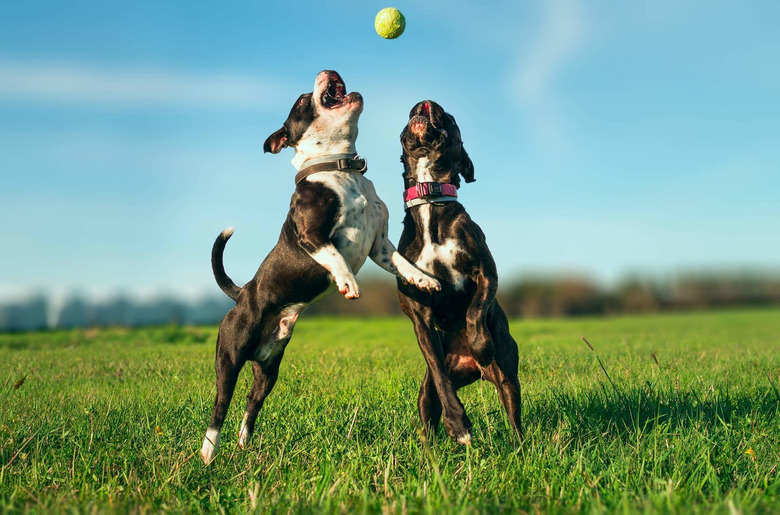Safe Outdoor Temperature For Dogs
If you've ever seen a dog confined to outdoor life, you've likely had one of three reactions: indifference, the assumption that the dog's owner understands her needs, or absolute outrage. However you feel about the situation, the truth is, dogs of all shapes and sizes who live in a variety of climates don't dwell inside the homes of their human companions. The mild days of spring and fall may seem like ideal times to sleep outside, but what about the rest of the year? What temperatures are safe, and unsafe, for our four-legged friends?
What is safe?
What is safe?
As a general rule of thumb — if it's too hot or cold for you, it's probably too hot or cold for your dog. Of course, this will all depend on the type of dog we're talking about. Healthy, adult dogs with thicker coats will generally be able to withstand colder temperatures for longer periods of time than, say, an elderly Chihuahua or other short-haired breeds. Alternatively, dogs with dark skin and shorter hair will likely undergo less stress on hot, sunny days than a shaggy Saint Bernard. When considering most healthy dogs, PetMD recommends bringing them in if temperatures drop too far below 45-degrees Fahrenheit or climb above 85-degrees Fahrenheit.
What do dogs need?
What do dogs need?
If your dog is going to be outdoors for an extended amount of time, he will need certain things to make his stay more comfortable, if not, humane. The first thing your dog will need, regardless of the weather, is shelter. Keeping your dog protected from environmental factors like sun, cold, and rain will help him regulate his body temperature, and allow him to rest comfortably outside.
Additionally, food and water are essential for indoor, and outdoor pets. Food should be provided daily, and food dishes should be cleaned regularly to prevent possible bug infestations. Fresh water should also be made available for your dog regardless of the weather. If your dog is outdoors during wet or snowy winter days, he will still need fresh water to drink to prevent serious physical conditions like dehydration.
That said, if your area is expected to get hit with a natural disaster or other inclement weather, like a hurricane, heat wave, or a blizzard, it is essential that you bring your dog inside. Like people, dogs can suffer from hypothermia and heat exhaustion, and as a pet owner, it is your responsibility to prevent these afflictions from occurring.
Signs of distress
Signs of distress
If you do keep your dog outside, how can you be sure she is healthy, safe, and comfortable? Healthy Paws Insurance offers a few helpful tips to keep in mind when assessing your dog's behavior and condition. Signs that your dog can be experiencing hypothermia, which can be fatal, include shivering, labored breathing, stiff muscles, and fixed pupils. Symptoms of heat conditions, like dehydration and heatstroke, include drooling, panting, vomiting, and increased heart rate.
If your dog is displaying any of these behaviors, it is important that you either warm her up or cool her down immediately, depending on the situation. If her condition doesn't improve or gets worse, take her to a veterinarian immediately for medical assistance.
Keep short outings in mind
Keep short outings in mind
Keeping your dog safe in outdoor temperatures doesn't only apply to dogs who live outside day and night. If you are taking your dog on a hike in the woods or even just an afternoon outing at a local park, preparing him for the weather will ensure an enjoyable experience for everyone involved. Does your dog get cold? Dress him for success in a light sweater or jacket, and limit outside exposure if you know he's uncomfortable. Got a long summer day planned? Be sure to keep water and hydrating snacks like carrots on hand, and secure a shady spot for your dog to rest in to keep his body temperature in check.
Always check with your veterinarian before changing your pet's diet, medication, or physical activity routines. This information is not a substitute for a vet's opinion.
